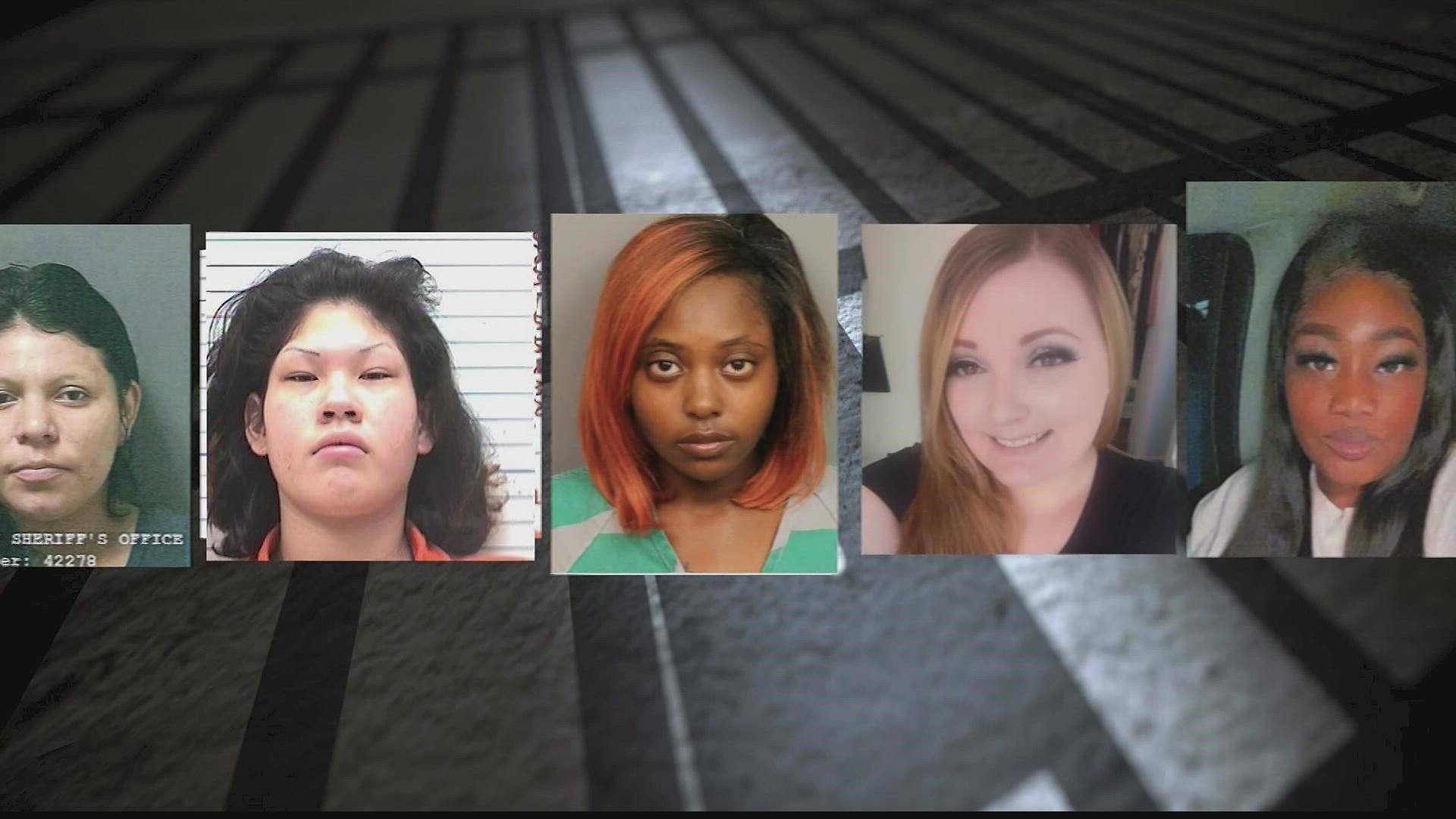ATLANTA — Concern is growing as reproductive rights advocates say the reversal of Roe v. Wade, a landmark Supreme Court decision that decriminalized abortion, no longer provides constitutional protection for abortion. One pregnancy advocacy group says pregnancy loss is already landing women in prison and could get worse in a post-Roe world.
Women have already been jailed for having a miscarriage.
11Alive Investigator Kristin Crowley learned the stories of seven women who have been deemed criminals after not being able to carry a pregnancy to full term.
Adora Perez, Chelse Becker, Kenlissia Jones, Regina McKnight, Brittany Poolaw, Lizalle Herrera and Marshae Jones all had different circumstances.
They’re only a few women who have faced charges in connection with a miscarriage.
A study the National Advocates for Pregnant Women did with Fordham University found disparities in arrests of pregnant women. Data shows 71 percent were low income and 59 percent were women of color— a majority of them identify as Black.
Dana Sussman with NAPW said the issue spans across the nation.
“We have a case out of Oklahoma right now in which a 19-year-old woman went to the hospital because she was experiencing a miscarriage. She was subsequently charged with manslaughter and she is currently serving a four-year term,” Sussman said.
Brittany Poolaw told doctors she used meth during her pregnancy, records show, and a cause of death for her baby was never determined. She was charged with manslaughter anyway.
So was Marshae Jones of Alabama.
Jones was pregnant when she was shot. The fetus died and Jones was arrested because prosecutors said she initiated the fight.
Kenlissia Jones, of Georgia, was charged with murder after she admitted she took abortion medication.
Most of these women had their charges dropped. But Sussman said if Roe v. Wade is overturned it could be a different story.
RELATED: Who voted against Roe v. Wade?
"Without Roe and Casey on the books, we expect to see more prosecutions,” she said, referencing Planned Parenthood of Southeastern Pennsylvania v. Casey --- a groundbreaking ruling that followed Roe v. Wade.
Sussman said sometimes the prosecutions could be rooted in misunderstandings and misinformation.
"I would say that first we've got to understand the science. No controlled substances cause pregnancy loss,” she said.
11Alive’s medical expert Dr. Sujatha Reddy said substances like drugs and alcohol can increase a woman’s risk for miscarriage but is not always the root cause of pregnancy loss.
“I don’t think 100% you can ever say, because again, there’s plenty of women who use illegal drugs who pregnancies to term,” the OBGYN said.
Reddy said determining what caused a miscarriage is difficult—even if a woman takes abortion medication.
“Even if you looked at the pregnancy tissue, there would be no way to tell a difference between someone that naturally miscarried or someone who chose to take medication to have an abortion. There'd be no way to tell that,” Reddy said.
And that’s how Sussman says women who have unexplained miscarriages could end up criminally charged.
“What we see time and time again is that prosecutors and juries and judges assume that a healthy birth outcome is within the control of the pregnant woman,” she said. “And if they don't have a healthy birth outcome, if they have a pregnancy loss, they must have done something to have caused that loss.”

